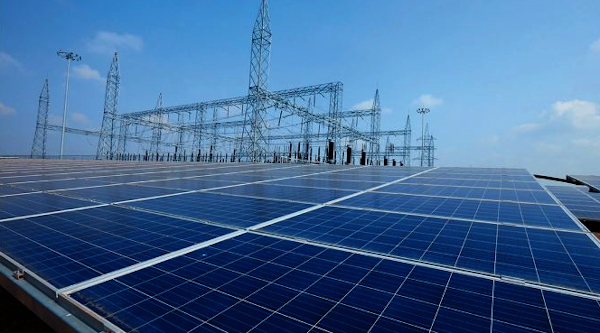India is likely to spend US$ 316 billion (~Rs. 23 lakh crore) in the decade to 2030 towards de-carbonisation, with a great amount of the financing to be earmarked to renewable sources of energy, according to a foreign brokerage. The financing will be on top of the estimated Rs. 6 lakh crore (US$ 84 billion) previously spent since the country joined the Paris climate accord in 2015, Bofa Securities stated.
Talking to reporters ahead of the Glasgow summit, the brokerage’s head of research Mr. Amish Shah stated that India has been one of the most dynamic states on-ground action and indicated to the fast-paced migration to vehicular emission norms as a case in point.
India is also correct in not proclaiming a target for achieving carbon neutrality, as is being done by all the other major economies of the world, he added.
Mr. Shah said he anticipates India to debate in approval of looking at carbon targets in the context of per-capita consumption instead of an overall perspective at the forthcoming meeting in Glasgow.
The brokerage told investments of ~Rs. 14,051 lakh crore (US$ 187.18 trillion) will be going towards a shift to renewable sources of energy, which will be followed by Rs. 4,939 lakh crore (US$ 65.50 trillion) of investments in rail freight capacity expansion and Rs. 2,044 lakh crore (US$ 27.23 million) in metro projects across many urban centres.
According to its assessments, the de-carbonisation attempts will help India save ~106 GW of energy between 2015-2030, and reduce carbon emissions by 1.1 billion tonnes by 2030.
Mr. Shah stated that when realized in the perspective of annual energy consumption of 150 GW per year, the energy-saving through the investments will be much more apparent.
He stated that India will not swiftly adopt nuclear energy as a alternative to power its economy, and the share of the source will be <10% in the overall energy mix.
A majority of the investments in this journey will be done by the private sector, Mr. Shah stated, adding that nearly a fourth of the leading 100 companies have previously declared their intent to be carbon neutral even without a directive on the same.
Additional areas that will see investments include upgradation in coal plant technology, shift from diesel to solar in irrigation pumps, rail electrification, improving the share of natural gas and electric vehicle charging stations, as per the study.
Source:IBEF
You may also like
-
Navigating India’s Skill Landscape
-
Trade Connect E-platform For Exports Is Single Window, Fast, Accessible And Transformational: Shri Piyush Goyal
-
India-us Working Together In Areas Like Critical Minerals, Supply Chains And Advanced Technologies: Shri Piyush Goyal
-
Cabinet Approves Health Coverage to All Senior Citizens of the Age 70 Years and Above Irrespective of Income
-
Cabinet Approves PM Electric Drive Revolution in Innovative Vehicle Enhancement (PM E-DRIVE) Scheme With An Outlay of ₹.10,900 Crore
